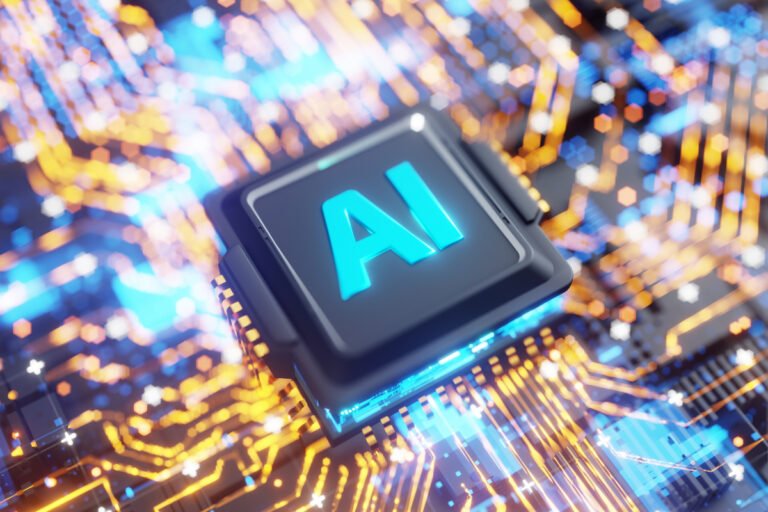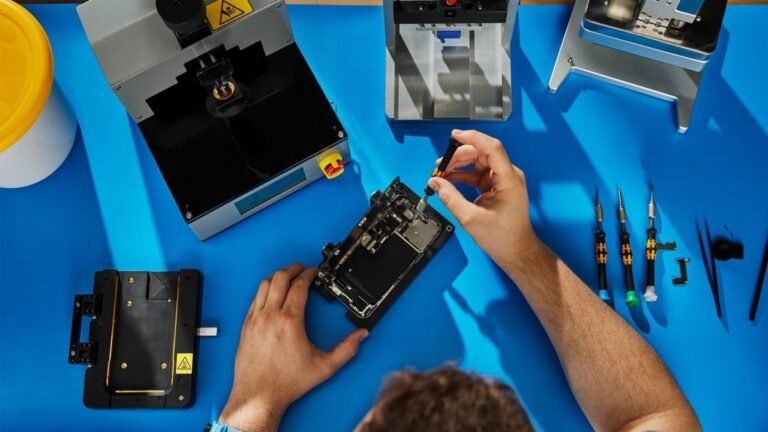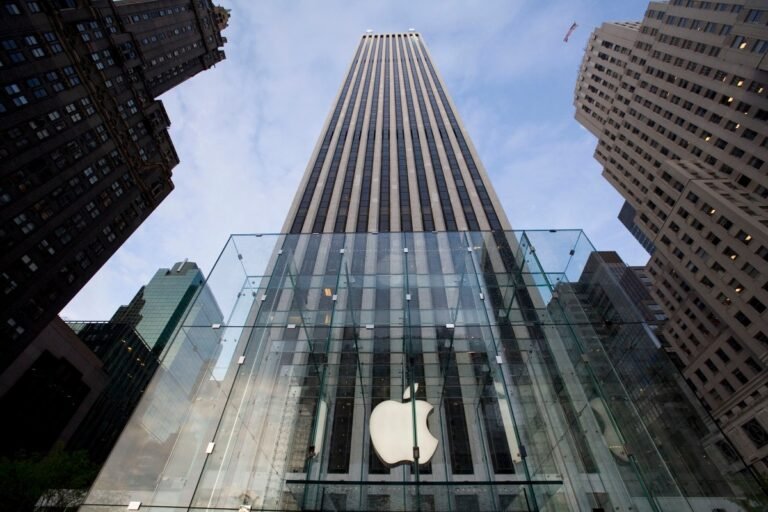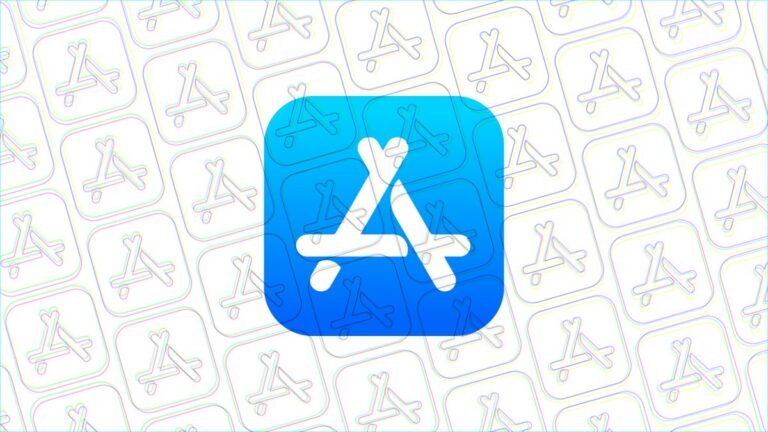
Apple is opening up web distribution for iOS apps targeting users in the European Union from today.
Apple’s walled garden stance has enabled it to funnel essentially all iOS developer revenue through its own App Store in the past.
An Apple rep described this as a baseline safety and security standard which they said iOS users expect to help ensure their device is protected from external risks.
Given Apple has only just started implementing web distribution for iOS apps it remains to be seen whether the EU will step in for a closer look at this aspect of its DMA compliance too.
It’s also unclear how much demand there will be among iOS developers for direct web distribution.

ISAs are a technical spec at the foundation of every chip, describing how software controls the chip’s hardware.
In addition to building the chip, Rivos is working on self-contained data center hardware based on the Open Compute Project modular standard, which will effectively serve as plug-and-play chip housing.
Startups by the dozens, meanwhile, are angling for a slice of a custom data center chip market that could reach $10 billion this year and double by 2025.
Habana Labs, the Intel-owned AI chip company, laid off an estimated 10% of its workforce last year.
Kumar wouldn’t talk about customers, and Rivos’ chip isn’t anticipated to reach mass production until sometime next year.

Apple has removed iGBA, a Game Boy emulator app for the iPhone, after approving its launch over the weekend.
First launched on Sunday, iGBA was an ad-supported copy of the open-source project GBA4iOS that offered a Game Boy game emulator for iOS.
The new app worked as described, allowing users to download both Game Boy Advance and Game Boy Color ROMs from the web and then open them in the app to play.
The Cupertino-based tech giant has been pushed to make the App Store more open thanks to the EU’s Digital Markets Act (DMA).
Following an update to its App Store rules to comply with the new regulation, Apple had announced it would also allow streaming game stores globally.

A few months after its launch, how is Apple’s Vision Pro faring?
I am a long-term bull on augmented reality, virtual reality, and face-computers in general.
So it is to my partial chagrin that the hype around the Apple Vision Pro has faded more rapidly than I anticipated.
But I anticipated the Apple brand to keep the hardware in the news — and atop our collective minds — longer than it managed after its launch.
I find it archaic that my monitors are akin to digital chalkboards when they should be built into my glasses.

Tesla drops prices, Meta confirms Llama 3 release, and Apple allows emulators in the App StoreHeya, folks, welcome to Week in Review (WiR), TechCrunch’s regular newsletter that recaps the past few days in tech.
Google’s annual enterprise-focused dev conference, Google Cloud Next, dominated the headlines — and we had plenty of coverage from the event.
Lorenzo wrote about how hackers stole over ~340,000 Social Security numbers from government consulting firm Greylock McKinnon Associates (GMA).
Elsewhere, Sarah had the story on Spotify’s personalized AI playlists, which lets users create a playlist based on written prompts.
Emulators in the store: Apple updated its App Store rules to globally allow emulators for retro console games an option for downloading titles.

On Thursday, Apple announced that it has opened its iPhone repair process to include used components.
Today’s news adds all components — including the battery, display and camera — which Apple requires to be configured for full functionality.
“‘Parts pairing’ is used a lot outside and has this negative connotation,” Apple senior vice president of hardware engineering, John Ternus, tells TechCrunch.
“I think it’s led people to believe that we somehow block third-party parts from working, which we don’t.
Ternus cites a recent UL Solutions study as evidence that third-party battery modules, in particular, can present a hazard to users.

Apple sent threat notifications to iPhone users in 92 countries on Wednesday, warning them that may have been targeted by mercenary spyware attacks.
The company sent the alerts to individuals in 92 nations at 12pm Pacific Time on Wednesday.
“Apple detected that you are being targeted by a mercenary spyware attack that is trying to remotely compromise the iPhone associated with your Apple ID -xxx-,” the company wrote in the warning to customers.
“This attack is likely targeting you specifically because of who you are or what you do.
Although it’s never possible to achieve absolute certainty when detecting such attacks, Apple has high confidence in this warning — please take it seriously.”The iPhone-maker sends these notifications multiple times a year and has notified users in over 150 countries since 2021, it wrote in an updated support page.

Apple News is testing a new game for iOS 17.5 called Quartiles, which requires players to organize a grid of 20 syllables into 5 four-syllable words.
Spotted by Gadget Hacks, the interface for Quartiles looks a lot like the New York Times’ newest hit, Connections.
Did Apple News sherlock the New York Times?
While it may appear odd for a news aggregator to continue investing in games, that’s exactly what has been working for the New York Times.
But given that the New York Times is low-key running a gaming studio now, it’s not a bad idea for Apple to churn out some new, preferably square-shaped games.

TechCrunch Mobility: Apple layoffs, an EV price reckoning and another Tesla robotaxi promise Plus, more Fisker problems and a Waymo-Uber Eats tie-upWelcome back to TechCrunch Mobility — your central hub for news and insights on the future of transportation.
The average price of an EV in 2023 was $61,702, while all other vehicles stood at $47,450.
This downward pressure has forced automakers like Ford to delay future EV launches and put more resources toward hybrids.
Even Tesla, a bellwether in the EV world, fell well below analysts’ expectations with deliveries down 20% from Q4 2023.
What vehicles — including the two-wheeled variety — are you interested in reading about?

Apple updated its App Store rules Friday to allow emulators for retro console games globally with an option for downloading titles.
Apple’s update will probably encourage some of those developers to bring their emulators to the App Store.
With Apple having to tweak App Store rules because of regulations, these kinds of games would provide another revenue stream for the company.
Plus, it updated App Store rules at that time to support in-app purchases for mini-games and AI chatbots.
“Apps may offer certain software that is not embedded in the binary, specifically HTML5 mini apps and mini-games, streaming games, chatbots, and plug-ins.












